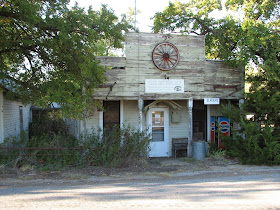Kansas has more than 6,000 dead towns. Here are a few of them I traveled to as a Hutchinson News journalist.
Monday, November 4, 2013
Pictures of Belvidere, a Kiowa County town
Beautiful View
While much of Kiowa County is flat terrain of farmland, the region in the county's southeast corner is an expanse where the sky expands across rolling waves of grass. When the wives of wealthy ranchers Iowa Watson and C.P. Fullington first saw the area, they thought it couldn't be more stunning.
Thus, the two dubbed the town site Belvidere - or "beautiful view" in Italian.
The land had once been part of the Osage Indian Trust, which totaled 8 million acres in a strip extending more than 250 miles across the southern border of Kansas, according to a Jan. 9, 1955, story in The Hutchinson News.
In 1870, Congress assigned the Osage to a reservation in Oklahoma and opened the land to settlement, according to "History of Kiowa County, 1880-1980." A post office named Glick was first established in nearby Comanche County in 1883. It eventually moved near to future town site of Belvidere.
With the railroad coming through, Watson and Fullington, both highly involved in the Greensburg State Bank, along with other interests, began to promote the little town their wives had named.
"Caught in the Boom! Property of the new town Belvidere. $100,000 worth sold in ten days," stated an advertisement in the Greensburg Rustler on May 12, 1887. The ad also said the town was on the railroad and surrounded by fine "bottom farmland."
A year later, the newspaper reported 25 new homes were under construction in the town situated in a clump of elms and cottonwoods along the Medicine River, according to the history book.
Despite its beauty, there was little potable water, Robbins said.
"You could drill a hole in downtown Belvidere and you'll probably find fluid that even a rabbit couldn't drink," he said. "The good water came a little higher."
The railroad began shipping water in tank cars, transferring it to a cistern near the depot, according the Kiowa history book. Crews drilled a well two miles east and eventually water was piped into town.









